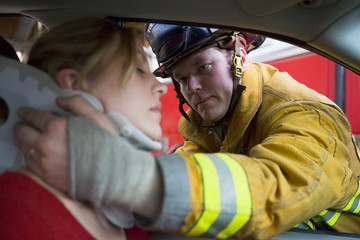Getting hurt by something you thought was safe can be both scary and confusing. If a faulty tool, toy, or appliance harmed you, you don’t have to face the aftermath alone. The Law Office of Shane Jennings is here to guide you through every step and fight for the compensation you deserve. Call (575) 308‑0308 today for a consultation with an experienced Product Liability Attorney who will put your well‑being first.
1. Understanding Product Liability
Product liability is the area of law that holds manufacturers, distributors, and retailers responsible when the items they sell cause injuries. A Product Liability Attorney focuses on proving that a product was defective and that the defect led directly to someone’s harm. There are three main kinds of defects:
- Design defects: problems built into the product from the start.
- Manufacturing defects: mistakes that happen while the product is being made or assembled.
- Marketing defects: poor instructions or missing safety warnings that make safe use impossible.
Knowing which category your case falls under helps your Las Cruces Product Liability Attorney build a clear argument about why the company should pay for your losses.
2. Common Types of Defective Products
Almost any product can be defective, but some items show up in lawsuits more often:
- Cars and auto parts: faulty brakes, tires, or airbags.
- Household appliances: overheating hair dryers or sparking microwaves.
- Children’s toys: choking hazards or toxic paint.
- Electronics: batteries that overheat or explode.
- Medical devices: hip implants or pacemakers that fail.
If one of these or any other product has harmed you, a Product Liability Attorney can determine who is at fault and how to hold them accountable.
3. Immediate Steps After an Injury
Acting quickly protects both your health and your legal rights. Follow these five steps:
- Get medical care right away. Your safety comes first, and medical records link the injury to the product.
- Keep the product and its packaging. Do not throw anything away. Your Product Liability Attorney will need it as evidence.
- Take photos and videos. Capture the defective part, your injuries, and the scene.
- Write down what happened. Fresh memories fade fast. A simple timeline helps later.
- Contact a Product Liability Attorney as soon as possible. Early legal help preserves crucial evidence and prevents costly mistakes.
Talking with a skilled Product Liability Attorney promptly can be the difference between a strong claim and a lost chance.
4. How a Product Liability Attorney Can Help
Hiring a lawyer may feel like an extra step, but it often leads to a better outcome. Here’s what a Product Liability Attorney does for you:
- Investigates the defect. They collaborate with engineers and safety experts to prove the product was unsafe.
- Calculates full damages. Medical bills and lost wages are just the start; pain, suffering, and future care also matter.
- Handles all communication. Your attorney speaks to insurance adjusters and company lawyers so you can focus on healing.
- Files the lawsuit on time. New Mexico’s statute of limitations sets a strict deadline. Missing it ends your right to sue.
- Negotiates or goes to trial. Many cases settle, but a dedicated Product Liability Attorney is always prepared for court.
With legal support, you gain a powerful ally who understands both the law and the tactics big companies use to avoid paying what they owe.
5. Building Your Case: Evidence and Documentation
A solid case rests on strong proof. Your Product Liability Attorney will gather:
- Medical records showing the type and extent of your injuries.
- Receipts for out‑of‑pocket costs like prescriptions and medical devices.
- Expert reports explaining how the defect caused the harm.
- Witness statements from anyone who saw the incident or can confirm product use.
- Company documents, such as recall notices or internal memos admitting a problem.
Keeping every piece of paper, bill, or email related to your injury helps your lawyer build an undeniable claim.
6. Dealing with Insurance Companies and Manufacturers
Insurers and manufacturers often try to settle fast and cheap. They know you might be anxious about mounting medical bills. Before you sign anything, let a Product Liability Attorney review the offer. Your lawyer will explain the true value of your claim and push back against lowball tactics. Remember, once you accept a settlement, you give up the right to ask for more later—even if new complications arise.
Product Liability Attorney in Las Cruces
Recovering from an injury caused by a defective product can feel overwhelming, but you do not have to navigate this journey alone. Let The Law Office of Shane Jennings stand up to the companies that put unsafe products in your hands. An experienced Product Liability Attorney will fight for the medical costs, lost income, and peace of mind you deserve. Call (575) 308‑0308 today for your consultation, and take the first step toward justice and healing.





















 When you choose to get involved in a lawsuit, you typically expect to win monetary compensation from the party that has wronged you. If you win the lawsuit, the next logical step is that the losing party pays you by order of the court.
When you choose to get involved in a lawsuit, you typically expect to win monetary compensation from the party that has wronged you. If you win the lawsuit, the next logical step is that the losing party pays you by order of the court.
 If you are arrested for charges related to domestic violence, you may feel intimidated. Of course, dealing with the legal system is never a walk in the park. The difficult road ahead of you is one reason why you might consider hiring an attorney to combat the charges.
If you are arrested for charges related to domestic violence, you may feel intimidated. Of course, dealing with the legal system is never a walk in the park. The difficult road ahead of you is one reason why you might consider hiring an attorney to combat the charges.
